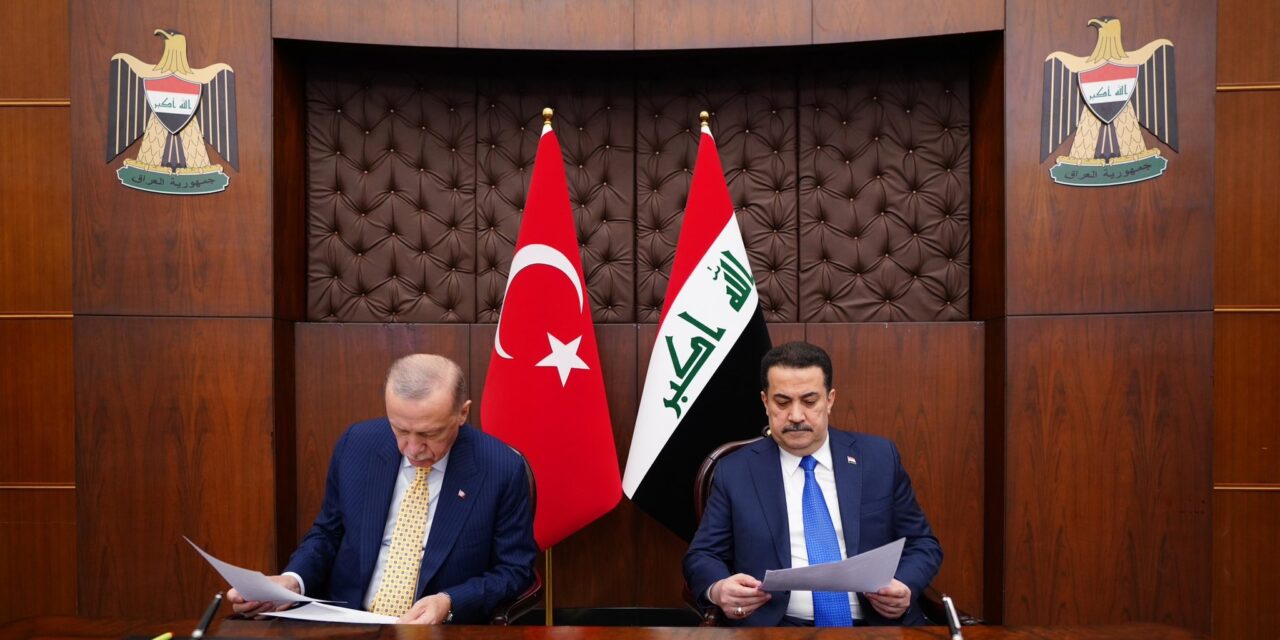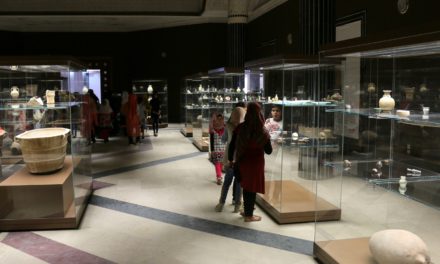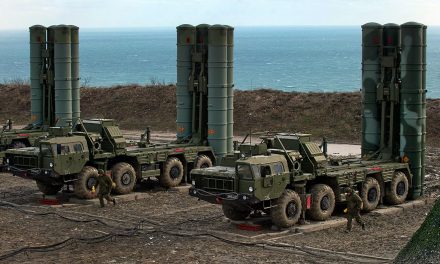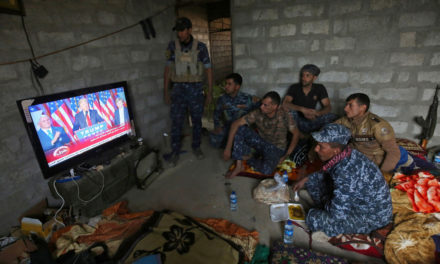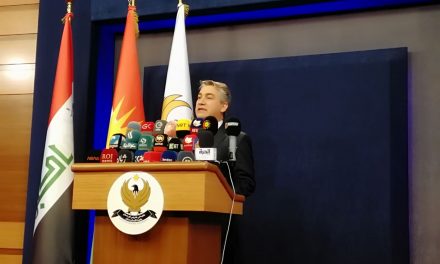Turkish forces continue their month-long offensive across the northern fringe of Iraqi Kurdistan. As of July 15, 2024, Turkish jets and drones have carried out more than 380 bombardments and burned more than 250 miles of farmland. The Turkish attacks have been especially hard on the region’s Christian-Assyrian community. After the Islamic State (ISIS) expelled Assyrians a decade ago from their traditional homeland in the Nineveh Plains, the Turkish bombardment now depopulates Assyrian enclaves in the far north of Iraqi Kurdistan.
The presence of Turkish forces predates the 2003 U.S.-led war to oust Saddam Hussein. The Iraqi leader miscalculated in 1991 when, against the backdrop of the Shia and Kurdish uprising against him, he calculated that he could deploy his forces to crush the southern rebellion and simply starve the Kurds into submission. The nascent Kurdistan Regional Government (KRG) filled the vacuum but Turkey exposed their weakness, establishing forward operating bases in Amedi, Kani Masi, Bamerne, and elsewhere. The Turkish bases came absent any agreement with Baghdad or Erbil.
The irony of Turkey’s declination to participate in the 2003 war to oust Saddam Hussein was that it had already occupied Iraqi territory for more than a decade, and on similar justifications. Weapons of Mass Destruction were not yet a factor, but terrorism was. Successive Turkish administrations argued that they needed to position their military in Iraqi Kurdish territory in order to prevent the Kurdistan Workers Party (PKK) on Turkey itself.
There was some logic here. Beginning in 1984, the PKK launched an insurgency inside Turkey, often targeting rival Kurdish groups. Within a decade, however, it had largely petered out. Prior to his death, Turkish President Turgut Özal signaled a willingness to negotiate a resolution that would give Kurds greater cultural and political freedoms. The PKK eventually abandoned its separatist demands in favor of a patchwork of local autonomies. By the time the United States invaded Iraq in 2003, the PKK insurgency was essentially over.
Although listed as a terrorist organization by Turkey, the United States since 1997, and the European Union, the PKK today is not a terror organization and poses little threat to Turkey or Iraq, no matter how Erdogan or Iraqi Kurds seek to scapegoat it. Belgium has removed the PKK from its terror list in 2019, reclassifying it as an insurgency. Its major threat is to Masoud Barzani’s Kurdistan Democratic Party (KDP) as Iraqi Kurds seek an alternative to Barzani’s increasingly autocratic and repressive kleptocracy. Iraqi Kurds feel desperation as they feel they have no hope for livelihood unless they’re a member of Barzani’s family. Many refugees fleeing across the English Channel come from Iraqi Kurdistan, not from war-torn Afghanistan or Syria.
Nor is the PKK an alien movement. While Abdullah Öcalan founded the PKK in Turkey, Iraqi Kurds embraced it on their own, especially after Barzani’s Peshmerga abandoned Kurds in Sinjar and the Nineveh Plains to ISIS. When Barzani’s sons Masrour and Waysi ordered the Peshmerga to retreat, they refused to allow Kurds and Yezidis to keep weaponry to defend themselves. As a result, Kurds turned to the PKK as their defenders.
Perhaps the best analogy to the international aspect of the PKK is the Patriotic Union of Kurdistan (PUK), the region’s second-largest party founded by the late Jalal Talabani. It was simultaneously an Iraqi movement and a member of the Socialist International; the two were not mutually exclusive.
Today, as Turkish forces drive deeper into Iraq, Prime Minister Mohammed Al-Sudani suggests that the PKK presence renders Turkey’s violations of Iraqi sovereignty legitimate. He is not alone. His predecessor Mustafa Al-Kadhimi likewise repeatedly subordinated Iraqi sovereignty to Turkish demands.
For the Iraqi prime minister, working with Turkey may appear as an easy decision. Iraqi oil flows northward, and Turkey controls the flow of water upon which Iraqi agriculture and hydroelectric power generation depends.
Baghdad may also make the simple calculation that countering Turkey’s aggression would be too difficult. Whereas two decades ago, the Barzanis and KDP positioned themselves as voices for Kurdish nationalism, today they symbolize the cynical betrayal of the Kurdish cause for personal gain. Defending Iraq’s sovereignty would mean not only standing up to Turkey, but also addressing its betrayal by the Barzanis.
The choices Sudani makes now, however difficult, will resonate for decades. The problem is that Turkey’s incursions are not temporary. Just as with Bashiqa, an Iraqi town in which the Turks established a base and refused to leave, there is no indication that Turkey will leave Iraqi territory seized under the pretense of fighting the PKK.
Indeed, evidence suggests the opposite. Upon Iraq’s independence, Turkey claimed the oil-rich former Mosul Vilayet. The League of Nations found against Turkey, but Ankara has never abandoned its claims. Indeed, one of the main reasons Turkey promotes the fiction that millions of Iraqi Turkmen live in the region is to justify Anschluss.
Sudani should understand the lesson of Cyprus. Turkey invaded the island twice, first in July 1974 and then a month later. The initial beachhead was enough to stop any effort by some Greek Cypriot leaders to seek unity with Greece. Against the backdrop of peace talks in Geneva, Turkey launched its second invasion, seizing nearly 40 percent of the island and ethnically cleansing it. It was a naked land grab, plain and simple. Turkey has since flooded northern Cyprus with settlers and seeks to extract gas illegally form offshore Cypriot fields. Today, Turkey demands recognition of the Turkish puppet state in northern Cyprus, a stepping-stone to annexation, much like Russia made “independence” of the Donetsk and Luhansk Peoples’ Republics a precursor to a fake plebiscite and annexation.
The same pattern is at play in Syria, where Turkish forces entered predominantly Kurdish districts in 2018 and proceeded to ethnically cleanse them. Turkish forces destroyed graveyards, issued Turkish identity cards, linked the area to Turkey’s domestic postal service, forced the use of Turkish currency and the Turkish language in school curricula, and enforced conservative Islamist dress upon a much more moderate population. Today, not only Turkish nationalists but also officials use maps that show Cyprus, northern Syria, and even Mosul as part of Turkey proper.
Sudani may seek to manage Barzani’s infamous temper-tantrums, but much more is at stake. If Sudani does not stop appeasing Erdogan, Iraq’s future will be akin to that of Cyprus or Syria: partition and decades-long occupation.
Iraq must realize: Turkey today poses an even greater threat to Iraq than Iran. While Iran interferes in Iraq’s domestic affairs and abuses its sovereignty by sponsoring militias answering more to Tehran than to Baghdad, Turkey seeks territorial adjustment that will permanently change the shape and territorial integrity of Iraq.

Michael Rubin
Michael Rubin is a senior fellow at the American Enterprise Institute and director of policy analysis at the Middle East Forum.

